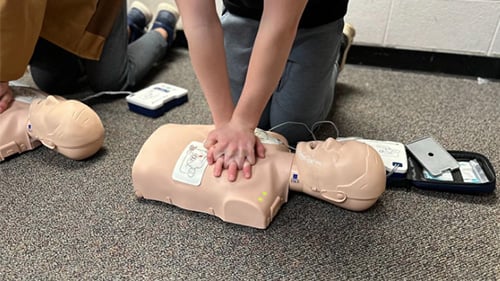Alternative Grading Methods
Most of the time, grading a stack of essays feels like shoveling a pile of smoke for the weekend. Not only are traditional grading methods...
AP & Honors Mathematics
Explore Wiley titles to support both AP and Honors mathematics instruction.
Literacy Skills & Intensive Reading
Connections: Reading – Grades 6–12
Empower student success with a proven intensive reading program that develops strong reading skills in striving readers.
Drama, Speech & Debate
Basic Drama Projects 10th Edition
Build students’ confidence and competence with comprehensive, project-based theatre instruction.
Literature
Connections: Literature
Support learners as they study dynamic, relevant texts and bring the richness of diverse voices to students through literature.
Literature & Thought
Develop critical thinking, reading, and writing across literacy themes, genres, historical eras, and current events.
Language Arts
Vocabu-Lit® – Grades 6–12
Help students build word power using high-quality contemporary and classic literature, nonfiction, essays, and more.
Connections: Writing & Language
Help students develop grammar, usage, mechanics, vocabulary, spelling, and writing and editing skills.
Reading/English Language Arts
Measuring Up to the English Language Arts Standards
Incorporate standards-driven teaching strategies to complement your ELA curriculum.
English Language Learners
Measuring Up for English Language Learners
Incorporate research-based best practices for ELLs with an approach that includes a focus on language acquisition strategies.
Mathematics
Measuring Up to the Mathematics Standards
Incorporate standards-driven teaching strategies to complement your mathematics curriculum.
Foundations
Measuring Up Foundations
Help students master foundational math skills that are critical for students to find academic success.
Science
Measuring Up to the Next Generation Science Standards
Give students comprehensive NGSS coverage while targeting instruction and providing rigorous standards practice.
Assessment
Measuring Up Live
Deliver innovative assessment and practice technology designed to offer data-driven instructional support.
For a better website experience, please confirm you are in:
Most of the time, grading a stack of essays feels like shoveling a pile of smoke for the weekend. Not only are traditional grading methods time consuming, but they also yield very little growth or maturation in our student writers. No matter how many comments we manage to squeeze into the margins of our student’s essays, they nevertheless make the same errors and commit the same glitches essay after essay. The major issue with traditional grading practices is that 99% of the heavy lifting is being done by the teacher. All our students need to do is read our comments (which we know many do not) and look at the grade. Over the course of his career, Kristian Kuhn has created 40 alternatives to traditional grading that will not only free up your evenings and weekends, but shift the onus back on to the learner, where it belongs for real learning to occur. You’ll come away from this webinar full of fresh ideas and inspiration to start grading—in the non-traditional way.

Most of the time, grading a stack of essays feels like shoveling a pile of smoke for the weekend. Not only are traditional grading methods...

Several years ago, I began using a 4-point Student Engagement rubric for assignments that were either early in the knowledge acquisition period or...

Transitional literacy focuses on bridging the gap between basic reading skills and more advanced literacy skills necessary for success during middle...

Way back in the day, we had this thing called Must See TV. And one of the shows you had to “must-see” was Cheers. Set in a bar in Boston, the show...

Carmel McDonald walks you through how she walks her middle school ELA students through narrative structure with an interactive plot map. Download her...

December always asks a lot of us.

Over the course of my career as a middle school ELA teacher, I’ve graded more writing pieces than I can count. I’ve graded late into the night, on...

The summer break is winding down, and soon you'll be setting up your classroom for another year of learning adventures. Whether you're a first-year...

Back in my hometown, it was a rite of passage at the age of twelve to get a paper route. There was no status associated with it, nor did it come with...

As secondary English teachers, we know how important it is for our students to learn to write well. We also know that oftentimes means we have over a...

In the first blog post of the Rhetoric Meets Remedy series, I discussed the importance of teaching for transfer. Teaching for transfer is vital...

Join Michael Guevara to discuss a strategy for letting students choose their own books to engage them in more texts. The books in this video were...

